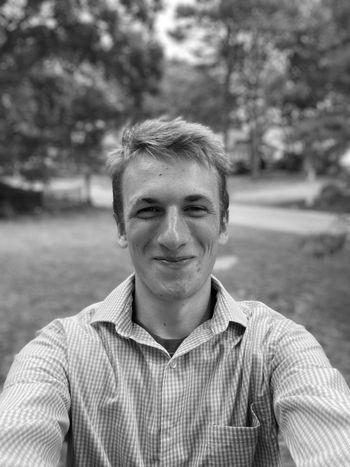Princeton offers course on gender pronouns and why they make people 'so angry'
The course explores such topics as why 'non-binary pronouns make (some) people so angry?'
Five students are currently enrolled in the class, far below its capacity of 25 students.
Princeton University students can take an entire course on gender pronouns this fall, exploring such topics as why “non-binary pronouns make (some) people so angry?”
The course, entitled “The Poetics and Politics of Pronouns” will investigate the use of personal pronouns through the lens of “gender theory.”
The course will prompt students to consider questions such as “How do pronouns regulate our relation to the world, to one another, and to gender?” and “Can the singular ‘they’ circumvent the traps of gendered language?”
“This seminar investigates the history of theoretical reflection on and literary experimentation with pronouns,” the description explains. “How does the constitution of the ‘I’ grant access to the symbolic order? … Can the singular ‘they’ circumvent the traps of gendered language?”
Five students are currently enrolled in the class, far below its capacity of 25 students.
[RELATED: Northwestern ‘Critical Fat Studies’ course will study ‘queer fat liberation movement’]
The course readings will cover areas of study such as poetry, “gender theory,” and linguistics.
Specific works that students will read for the class include “The Nature of Pronouns” by Émile Benveniste and What’s Your Pronoun: Beyond He & She by Dennis Baron.
Students will also read “The Mark of Gender” by Monique Wittig, in which Wittig writes: “‘I’ has become so powerful in Thc Lesbian Body that it can attack the order of heterosexuality in texts and assault the so-called love, the heroes of love, and lesbianìze them, lesbianìze the symbols, lesbianize the gods and the goddesses, lesbianize the men and the women.”
The course will be taught by Dr. Daniel Hoffman-Schwartz, a lecturer in Princeton’s Department of Comparative Literature.
[RELATED: Harvard class on Byzantine Empire to study ‘trans monks’ and ‘genderless angels’]
Hoffman-Schwartz has previously taught courses titled “The Way We Watch Now: ‘Quality Television,’ Critical Theory, and Contemporary Culture” and “Marx in the 21st Century.”
Hoffman-Schwartz’s class on Marx asked students to consider, “What would a Marxism for the 21st century look like?,” and to “examine the contemporary viability of Marx’s fundamental concepts - such as labor, exploitation, ideology, and revolution.”
The course also included subtopics such as “affective labor, student-debt, social media and ‘algorithmic capitalism,’ Occupy Wall Street, Black Lives Matter.”
Campus Reform has contacted Princeton University and Princeton’s Office of Diversity and Inclusion for comment. This article will be updated accordingly.

